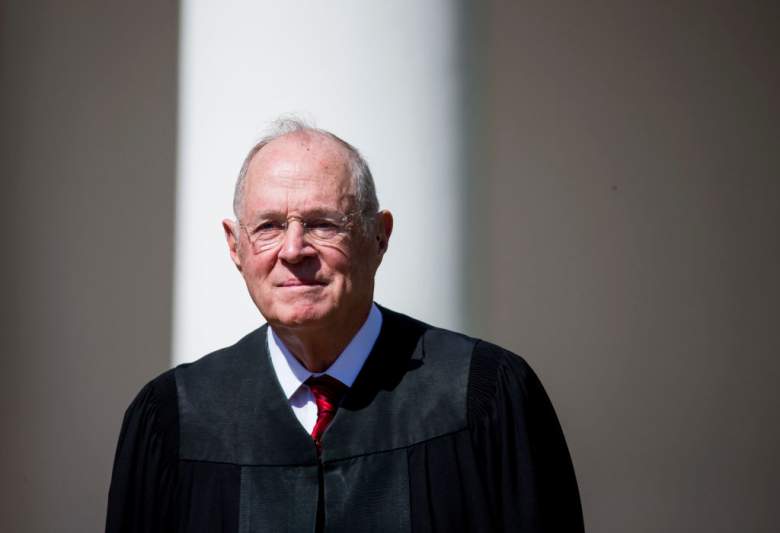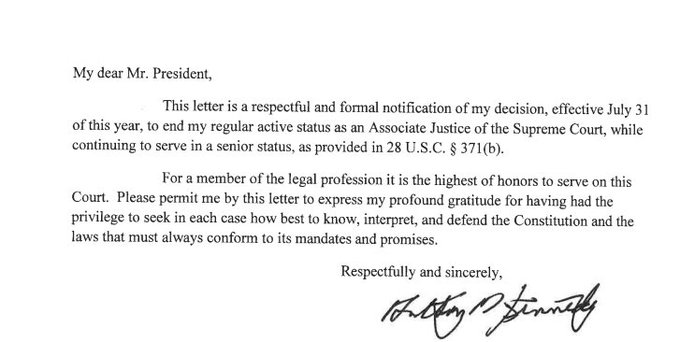
Getty Images Anthony Kennedy announced his retirement from the Supreme Court bench on June 27.
On Wednesday, Supreme Court Justice Anthony Kennedy announced his retirement from the Supreme Court bench.
This means that President Trump will have the opportunity to nominate his pick to replace Kennedy, which could have ramifications on Constitutional law in the United States for generations. What’s more, the list of the 25 supposed nominees that Trump will choose from was released by the White House (and posted to Twitter via Senior Politics Reporter Jennifer Bendery).
In the Oval Office, Trump spoke to reporters about Kennedy’s retirement (video below). He called Kennedy a man he had “great respect for,” and added that “Kennedy is a man I’ve known for a long time…he’s been a great Justice of the Supreme Court, he’s a man who has displayed great vision, displayed tremendous vision and tremendous heart, and he will be missed, and we will begin our search for a new Justice…immediately.”
According to USA Today, Trump immediately assembled a group of 25 nominees early Wednesday morning, and assured reporters in the Oval Office, “It will be somebody from that list,” Trump said. “Hopefully, we will pick someone who is just as outstanding.”
According to his retirement letter (as shown below), Kennedy’s retirement will be effective July 31.
Though Kennedy was a traditional conservative, he provided key votes of support for such hallmark cases as the rights of same-sex couple to marry and the right of women to have safe and legal access to abortion.
As Vox notes, Kennedy consistently played the role of the swing vote in other substantial Supreme Court cases, oscillating between the liberal and conservative sides. He went conservative in supporting warrantless wiretapping,
Recently, Kennedy was a swing vote in favor of upholding the controversial muslim ban, though he reminded Trump in his concurrence statement that Trump was not “above the law”. Kennedy wrote, “An anxious world must know that our Government remains committed always to the liberties the Constitution seeks to preserve and protect, so that freedom extends outward, and lasts.”
It is unclear which of the 25 nominees Trump will offer up as a replacement to Kennedy, though it’s safe to assume it will be a conservative. Given that Republicans are currently in control of both the House and the Senate, it’s likely that Trump will move to push a nomination forward prior to the 2018 midterms, which could result in a flipping of both the House and the Senate.
On Wednesday, Senate Majority leader Mitch McConnell confirmed that the plan was to vote for Trump’s appointee in the fall.
If and when Trump is able to find a suitable replacement, he could push the favor of staunch conservatives on the bench to five, which could lead to generations of conservative lawmaking on the highest bench of law in the country.
In the past, Supreme Court nominations have been incredibly contentious. Obama was stonewalled by Republicans in the House and Senate from appointing his Supreme Court nominee, Merrick Garland, for over eight months in the last year of his presidency. In a similarly controversial fashion, Republicans reportedly changed the rules of the Senate last year in order to push Neil Gorsuch’s nomination through.

